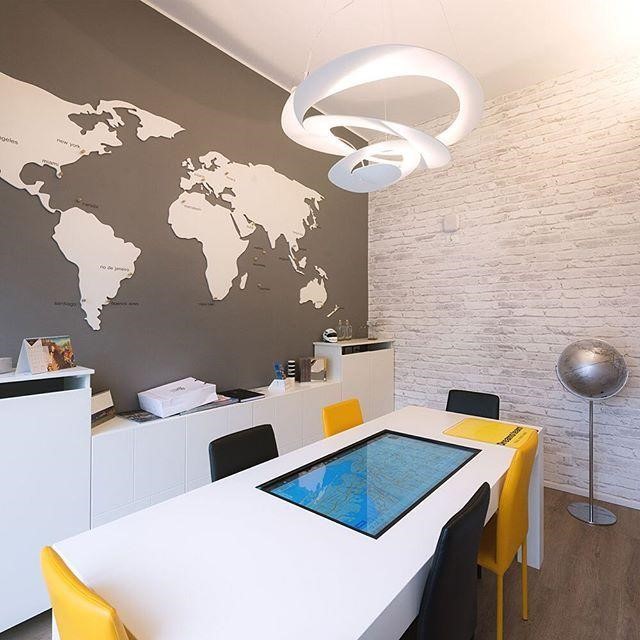Global connections are more crucial than ever. Corporate travel fuels these connections, allowing companies to reach new markets, build partnerships, and close deals. Yet, travel expenses can quickly inflate operational costs, impacting profitability and bottom lines. Adopting effective tips to save money on corporate travel ensures businesses optimise their travel budgets, exploring innovative solutions to reduce expenses without sacrificing travel quality.
However, there’s an exciting silver lining: with the right strategies, saving money on corporate travel is not just possible; it’s profitable.
A budget-conscious travel mindset doesn’t require sacrificing productivity or comfort. It’s about optimising planning, leveraging technology, and adopting smart spending habits. This blog will equip you with powerful tools to understand corporate travel costs without compromising the essence of successful business trips.
Advanced Planning and Booking Tactics
- Early Bird Advantage
Time is money, and this saying is true in the world of travel. Booking flights and accommodations well in advance unlocks a treasure trove of early-bird discounts and promotions. Airlines often offer significant savings on fares booked months ahead, while hotels extend attractive deals for long-term reservations. Planning also allows for strategic scheduling, enabling you to get cheaper flights by travelling on weekdays or less popular travel dates.
- Deal Navigation Experts
Technology is your secret weapon in finding the best travel deals. Travel booking apps and websites aggregate fares from multiple airlines and hotels, making comparison shopping a breeze. Utilise tools like Google Flights for flexible travel date suggestions and price alerts, or invest in corporate travel management platforms that negotiate preferential rates with airlines and hotels. Loyalty programs with airlines and hotel chains offer additional savings through accumulated points and exclusive discounts.
- Embrace Flexibility
Sometimes, a slight deviation from the originally planned travel dates can significantly impact your budget. Encourage employees to consider flexible travel dates and times when possible. Opting for flights arriving at off-peak hours or travelling mid-week can save substantial costs. Sometimes, flying into a nearby airport or exploring alternative accommodation options in less central locations can offer surprising price breaks.
Optimal Expense Management Strategies
- Accommodation Alternatives
Beyond luxurious hotel stays, explore budget-friendly accommodation options that meet your needs while keeping costs down. Negotiate corporate rates with preferred hotel chains or consider extended-stay hotels and serviced apartments for longer trips. For budget-conscious trips, Airbnb rentals can offer comfortable and convenient accommodation at a fraction of the price. Remember, the hotel’s location and amenities should align with the trip’s purpose and duration.
- Economical Transportation
Ditch the expensive taxis and explore commutation options that fit your budget. Public transportation systems offer excellent value and convenient connections within urban areas. For business trips outside major cities, consider carpooling with colleagues or utilising car rental services with competitive rates and mileage programs. When renting cars, compare options and opt for fuel-efficient vehicles to reduce transportation costs further.
- Mealtime Savings
Business trips don’t have to be synonymous with expensive restaurant meals. Encourage employees to explore budget-friendly options like local cafes, street food vendors, or grocery stores for breakfast and lunch. Consider packing some snacks and drinks for longer trips to avoid unnecessary convenience store purchases. Group dinners with colleagues can be a cost-effective alternative to individual dining, fostering team bonding while splitting the bill. Companies can significantly save money on corporate travel by implementing tailored ways to save money on work-related trips.
Additional Cost-Saving Tips
- Minimise checked baggage: Opt for carry-on luggage whenever possible to avoid baggage fees.
- Utilise free Wi-Fi: Limit mobile data usage by relying on hotel and airport Wi-Fi for internet access.
- Plan entertainment around free activities: Explore museums with free entry days, parks, or local cultural events instead of opting for expensive tourist attractions.
- Track and categorise expenses: Encourage employees to keep meticulous records of their travel expenses for accurate expense reports and cost analysis.
Maximising Corporate Travel Policies and Negotiations
While we’ve tackled individual cost-saving strategies, maximising corporate travel requires holistic optimisation. Strategic cost-saving measures are vital to corporate travel cost savings, offering companies actionable ways.
This involves harnessing the power of structured policies, strategic negotiations, and intelligent technology. There are comprehensive guides to saving money on corporate travel, which are invaluable resources for organisations seeking to save money on work-related trips.
- Aligning with Company Policies: Charting a Clear Course
Effective corporate travel policies aren’t just guidelines; they’re your compass. Ensure employees understand and adhere to these policies. Encourage regular reviews and updates to reflect your company’s evolving travel needs and market trends. Transparency in policy creation fosters employee buy-in and compliance, leading to lower spending overall.
- Negotiation Prowess
Don’t just accept the first quote! Hone your negotiation skills and leverage your company’s volume to secure better rates and deals. Negotiate with airlines, hotels, car rental companies, and other travel providers. Consider forming consortiums with other companies for combined negotiating power.
Remember, every percentage point saved adds up significantly over time.
- Exploring Cost-Saving Partnerships and Collaborations
Seek out strategic partnerships and collaborations to unlock further cost savings—partner with travel agencies or corporate travel management companies specialising in negotiating advantageous business rates. Explore opportunities to collaborate with other companies travelling to similar destinations for potential group discounts or shared transportation arrangements.
Leveraging Technology for Financial Efficiency– Smart Tools, Smarter Savings
Take technology as your ally in the quest for cost optimisation.
- Digital Tools for Expense Tracking
Invest in digital expense tracking tools that streamline employee and finance department processes. These tools eliminate manual paperwork, reduce errors, and expedite reimbursements, saving time and money.
- Technology-Driven Savings: Reducing the Need to Roam
Leverage video conferencing and collaboration tools to minimise unnecessary travel. Holding virtual meetings, conferences, and presentations can significantly reduce travel expenses while maintaining productivity and fostering business connections.
- Utilising Travel Management Platforms: Your Cost Optimisation Hub
Travel management platforms (TMPs) are your central cost optimisation hub. They combine booking tools, expense management, corporate rate negotiation, and real-time data analysis to provide actionable insights into your travel spending. Utilise TMPs to identify cost-saving opportunities, make informed travel decisions, and ensure compliance with company policies.
- TIO – Travel Ideas Online
TIO offers cost-effective solutions for corporate travel, saving money for travel agencies and companies. Through its platforms like T-Broker Marketplace and VendorHub, TIO streamlines the process of finding and managing travel products and services.
By utilising
- T-Broker Marketplace, agencies gain access to exclusive deals and offerings, ensuring they can provide cost-efficient travel packages to corporate clients.
- VendorHub, however, allows for better inventory management and cost-effective procurement, reducing travel agency expenses. For corporate travel use, TIO’s comprehensive suite of tools simplifies bookings, provides access to discounted rates, and enables efficient management, ultimately reducing overall travel costs.
Employee Education and Compliance: Cultivating a Cost-Conscious Culture
Cost-effective travel isn’t a one-time initiative; it’s an ongoing cultural shift.
- Training for Cost-Conscious Travel // Equipping Your Team
Provide regular training sessions for employees on travel policies, cost-saving strategies, and negotiation techniques. Equip them with the knowledge and skills to make informed travel decisions aligning with company goals and personal preferences.
- Encouraging Compliance
Implement incentive programs and recognition initiatives to reward employees who consistently demonstrate cost-conscious travel practices. This fosters a responsible spending and compliance culture, making cost-saving measures the norm. Businesses can achieve substantial business travel expense reduction by adopting various money-saving strategies.
- Fostering a Culture of Responsible Spending
Go beyond cost savings and build a culture of responsible corporate travel. Encourage employees to be mindful of their environmental impact by choosing eco-friendly travel options and minimising unnecessary waste. Integrating sustainability into your travel program contributes to cost savings and aligns with your company’s social responsibility goals.
You can transform your corporate travel program from a cost centre to a powerful engine for optimisation and growth. Remember, cost-effective travel is not just about saving money; it’s about making smarter decisions, maximising value, and building a sustainable future for your business.
Final Thoughts
Go beyond mere cost savings and emphasise the transformative potential of implementing these strategies. Conclude by highlighting how cost-efficient travel can boost profitability, enhance employee satisfaction, and contribute to a more sustainable business model. Inspire businesses to embrace cost-conscious travel as a strategic approach to achieving long-term success. Remember, a strong conclusion should equip your readers with the knowledge and motivation to take action and start their journey towards cost-effective corporate travel. Visit TIO for more information.
FAQs
- Are advanced booking and planning the most effective ways to save on corporate travel expenses?
Yes, planning and booking in advance often provide access to better deals and rates, helping companies save on airfare, accommodations, and transportation costs. Early planning also allows for more flexibility in securing cost-efficient options.
- How can technology aid in reducing corporate travel expenses?
Utilising expense management software, travel apps, and virtual meeting platforms can significantly reduce travel costs. These tools streamline expense reporting, enable virtual meetings, and help track and optimise travel expenditures. Like TIO, a platform that serves as an all-in-one solution for booking, scheduling, picking up the best deals, etc.
- Is employee education crucial in implementing cost-saving measures for corporate travel?
Absolutely. Educating employees on cost-saving strategies, encouraging compliance with travel policies, and fostering a culture of responsible spending are essential elements in reducing corporate travel expenses.
- Are there other ways, apart from cost-effective bookings, to save on accommodations and transportation during business trips?
Certainly. Exploring alternatives like Airbnb, extended stays, corporate rates, and opting for cost-efficient transportation methods such as public transit or carpooling can significantly lower accommodation and commuting expenses. Exploring cost-effective corporate travel solutions is essential to streamline travel expenses, ensuring that companies save money on work-related travel without compromising productivity or quality. Cost-effective corporate travel solutions are essential to streamline travel expenses, ensuring that companies save money on work-related travel without compromising productivity or quality.
- How can companies continuously optimise and monitor their corporate travel expenditures?
Regular audits, analysis of travel expenditure patterns, and leveraging data-driven insights play a pivotal role in identifying areas for improvement. Implementing tailored cost-saving measures based on this analysis allows companies to continuously optimise their travel expenses. Budget-friendly business travel tips are pivotal in managing travel cost management for corporations.


